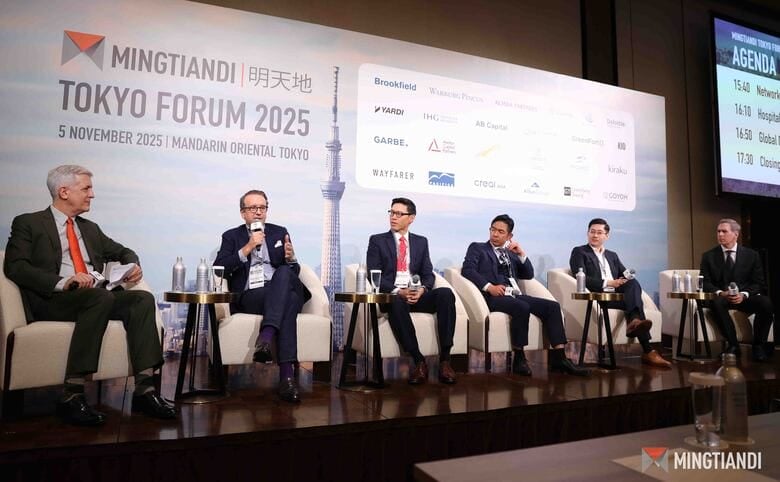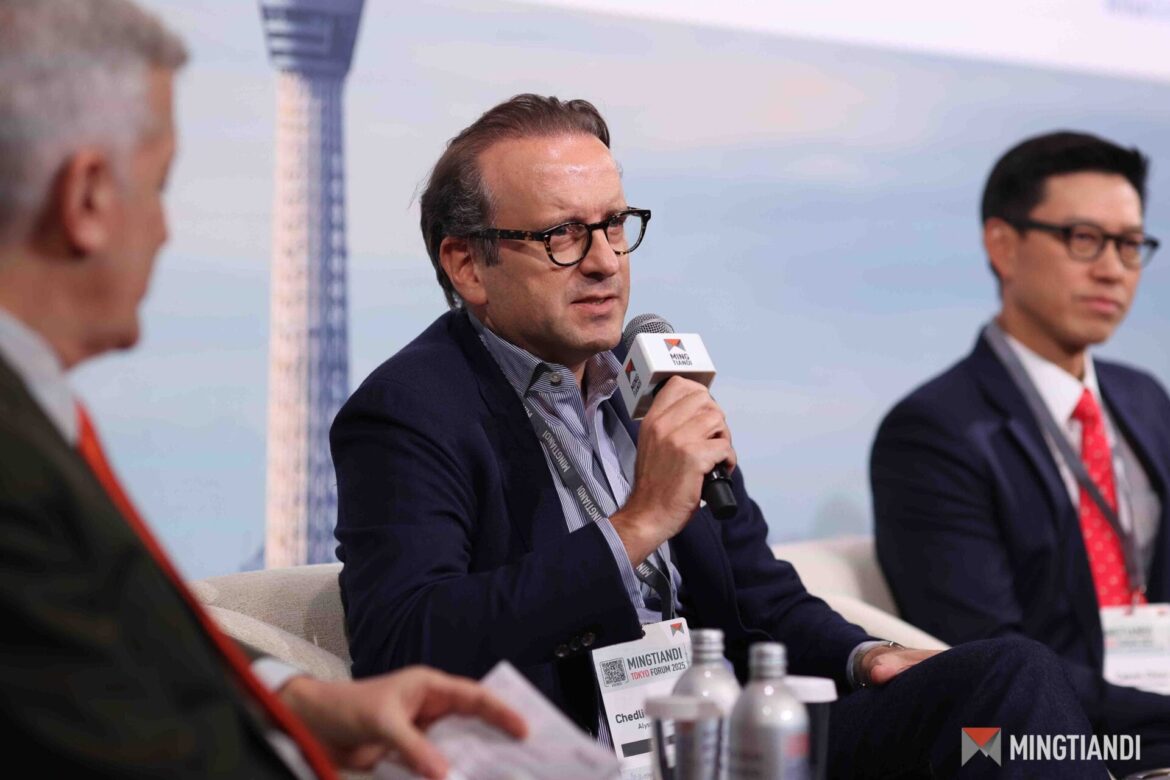Japan remains one of the globe’s most exciting destinations for real estate investors, even as fierce competition for assets and the spectre of higher borrowing costs create challenges, according to speakers at the Mingtiandi Tokyo Forum.
Senior leaders from Alyssa Partners, Invesco Real Estate, EQT Real Estate, TE Capital Partners and Tokyo Trust Capital covered the megatrends driving Japan’s property markets during the keynote panel at Wednesday’s all-day event.
As the founder, managing partner and CEO of Alyssa, Chedli Boujellabia leads a Japan-only firm with JPY 300 billion ($2 billion) in assets under management and a focus on multi-family properties in key cities. He told the audience of over 200 delegates at the Mandarin Oriental Tokyo that Asia’s second-biggest economy continues to provide a steady environment for real asset investors seeking risk-adjusted returns.
“Within Japan, we are still able to operate within a relatively narrow band of variability when we look at any investment opportunity,” Boujellabia said. “Meaning that unlike other developed markets, we don’t have to worry about political instability, regulation, things like rent control. Things like social unrest. So the infrastructure is there. It’s a big developed country, big developed markets.”
Tighter Dealmaking
Deals are getting harder to execute in Japan’s highly active and liquid real estate market, according to Boujellabia. And while increased borrowing costs may look “alarming” from a Japanese perspective, he noted that the base rate still hovers below 1 percent and investors can fix for five years at 1.3 to 1.4 percent.


Alyssa’s Chedli Boujellabia speaks during the keynote panel of the Mingtiandi Tokyo Forum
“We are immune from any kind of hiccups we see in other parts of the world, whether they’re political, social, wars,” Boujellabia said. “So I think these things are becoming more and more important from any global CIO looking at allocations and where they should invest.”
Calvin Chou, Invesco Real Estate’s head of Asia Pacific, echoed Boujellabia’s sentiment that the Japanese market is undergoing fiercer competition, tighter pricing and more difficult access to higher-return targets. The real estate arm of the US investment manager looks after $82.6 billion in assets globally, and the Japan allocation has dipped from more than 60 percent of Asia Pacific AUM five years ago to around 45 percent today.
“I’d say we have been a net seller,” Chou said. “But that’s partially because there’s been such an influx of capital, both locally and foreign, into this market. And I think most of that’s driven by strong fundamentals. The macro story has been strong. Borrowing costs remain quite low. And for foreign investors, there’s been a currency benefit to investing in this market.”
Tokyo Trust chief executive Christopher Handte said his firm is finding opportunities in smaller-scale buildings and B-class offices, a market aimed at small businesses and local companies looking to upgrade their space. Tokyo Trust and its key shareholder TE Capital Partner just completed their acquisition of a newly built 12-storey office building near the main Tokyo Station with 4,200 square metres (45,208 square feet) of gross floor area.
“What I’m learning from this most recent investment is you want to be central,” Handte said. “You want to be higher quality. I’m happy to do all of our deals in Tokyo, but I would also consider central Osaka for office. But the key is to be central. And I still think that we’re relatively new in that trade because it took a while for foreigners to get interested.”
Overseas Interest
Japan has always been close to the heart of Singapore-based TE Capital, said executive director Stanley Shen, who cited the country’s proximity to outbound investor hubs like the city-state and Hong Kong.
“We’re very comfortable and very confident about how real estate would perform in Japan,” said Shen, whose firm manages more than $2.3 billion in assets across Singapore, Japan, Australia and the US. “A testament by our peers here today, and many of them have been saying they have lots of dry powder to deploy and I’ve heard so many stories about them losing out on bids from the local capital.”
One foreign firm keen to up its bets in Japan is Swedish private equity house EQT, which plans an expansion in a broad range of investment fields including real estate and infrastructure, CEO Per Franzen told Nikkei Asia last month.
At Wednesday’s forum, EQT Real Estate country head Michio Matsumoto drew a contrast between the long-term view of corporate buyouts espoused by EQT, a manager of more than $300 billion in assets globally, and the sort of investor activism that prodded brewer Sapporo Holdings to put its property portfolio up for sale.
“We like to align with not only the shareholder but also the president or CEO or the top management of the company to make the company grow in the long run,” Matsumoto said.
A Panel in Pictures


AloJapan.com